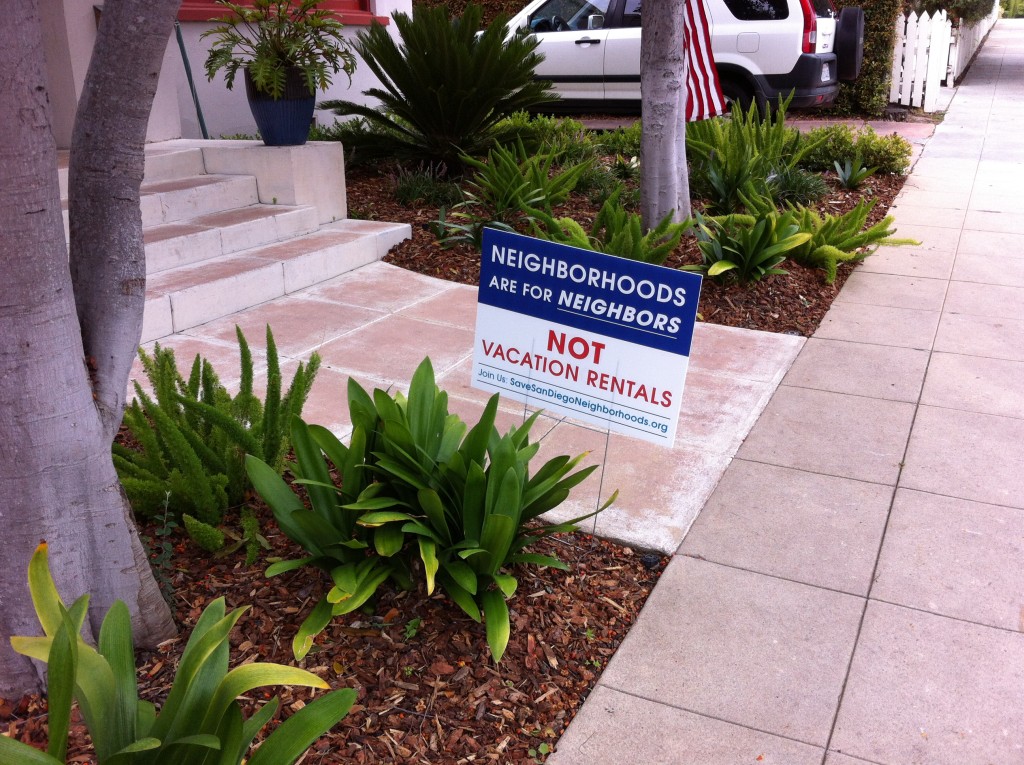 The City of Coronado scored another victory in its continuing battle against short-term rentals. Daniel and Adena Friedman paid the City of Coronado $8,000 this week. As part of the out-of-court settlement, reached on July 31, the couple also agreed to notify the city, within two business days, whenever friends or family are staying in the couple’s condominium on Isabella Avenue for fewer than 26 days. The Transient Occupancy Ordinance, which the Friedmans violated, only applies to renters, not relatives. The couple also agreed not to advertise their property as a transient rental, according to city spokesperson Janine Zúñiga.
The City of Coronado scored another victory in its continuing battle against short-term rentals. Daniel and Adena Friedman paid the City of Coronado $8,000 this week. As part of the out-of-court settlement, reached on July 31, the couple also agreed to notify the city, within two business days, whenever friends or family are staying in the couple’s condominium on Isabella Avenue for fewer than 26 days. The Transient Occupancy Ordinance, which the Friedmans violated, only applies to renters, not relatives. The couple also agreed not to advertise their property as a transient rental, according to city spokesperson Janine Zúñiga.
The money will be used to recover cost of enforcement as well as a loss of revenue. Had the couple been operating a hotel, guests would have had paid a transient occupancy tax (TOT). This tax is a principle revenue source; the money goes into the city’s general fund which pays for a broad-range of city services.
This is the fourth time the city has taken a violator to court. All have been successful in the city’s favor. According to court records, the Friedmans had violated the ordinance on multiple occasions and had received several warnings, which they failed to heed.
“We always contact people and give them fair warning that they are violating the ordinance and give them a chance to voluntarily comply,” City Manager Blair King said. “No one we prosecute can claim they didn’t know they were violating the code.”
Most do comply. Sometimes it takes more than one notification. When the city learns about a violation, they first send a general letter explaining the law and the consequences of violating it. These include fines, civil penalties, court costs and attorney fees. If the homeowners persist, Assistant City Manager Tom Ritter calls them, and then sends a follow-up letter pointing out specifics, such as naming the website(s) where their ad(s) appear. If the violators persist after this, the case goes the city attorney.
Complaints from neighbors and by monitoring popular rental websites are the two sources the city uses to ferret out violators. For several years the city has had an intern track websites and newspaper ads. Violators are easy to detect Ritter said, “Unless the ad says there is a 25-night minimum stay, we know it is a short-term rental.” Some try to circumvent this by not listing a minimum stay; instead telling people to contact to lessor, clearly a red flag. “It never works,” said Ritter.
Complaints from neighbors are also important. They see the moving vans and the cleaning crews coming and going, cars without of state license plates, there for the weekend and then gone. “We take residents’ complaints seriously,” Ritter said.
To that end the city has set up a designated e-mail account to report violations – [email protected]. Residents can also call the city manager’s office at (619) 522-7335 to report violators.
The names of people who complain are kept confidential. No one outside the city manager’s office will ever know who they are, their names are redacted from official complaints.
The city’s short-term housing ordinance has been in effect for 30-years, but with the rise of the internet and “sharing economy,” Coronado officials have seen a rise in violators. More people are looking to turn their homes into a revenue source. Some are even buying property with the sole intent on renting it out. Turning a home into a hotel has a number of negative consequences for the community. “It increases rental rates, and more importantly it damages the residential character of a neighborhood,” Ritter said.
Coronado Settles with Property Owners for $8,000, Promise Not to Rent Short Term




